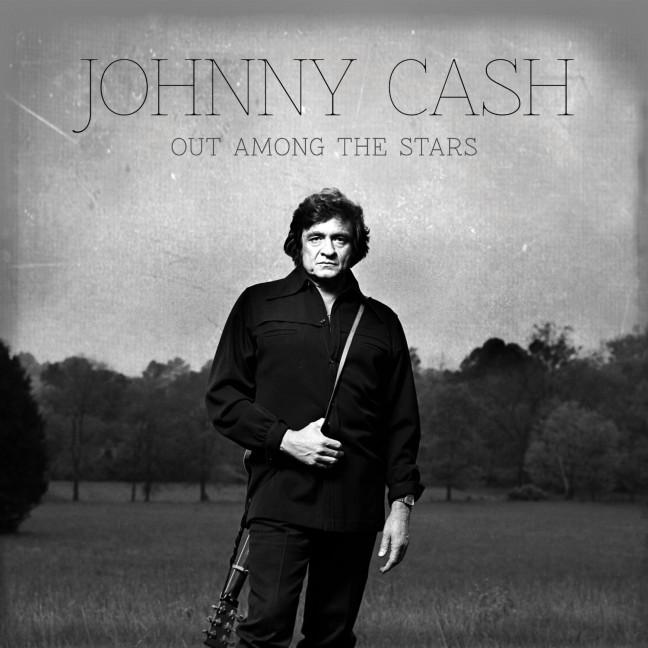The man’s life reads like a country song: humble beginnings and early stardom followed by a failed marriage and a long struggle with drug abuse. A new marriage, this time for good. Declining commercial success and failing health, until he created a prolific series of albums late in his life, cementing his legacy and bringing the song to a graceful end.
After his death in 2003, Johnny Cash left behind volumes of unreleased work spanning his whole career. The most recent offering, Out Among The Stars, comes from a relatively unknown period in Cash’s life, when his music had lost traction amid the rapid cultural shifts of the late 1970s and ’80s.
The tracks on Out Among The Stars were originally recorded with producer Billy Sherrill in the early 1980s. Cash’s son, John Carter Cash, discovered the recordings and enlisted musicians to help finish the tracks. Composed of both covers and previously unreleased material, the album fits neatly into Cash’s genre-spanning catalog. Straight country sits alongside countrypolitan waltzes and grooving rockabilly.
The album feels like Cash at his most true. No longer attached to his longtime label Columbia, Cash was free to say what he wanted. The result is an album that is both multifaceted and personal.
He sings about a murder-suicide on the darkly humorous “I Drove Her Out Of My Mind,” dropping lines like “Here she comes to greet me / Dressed to kill and so am I” with what sounds like an evil grin. The jubilant duet with Waylon Jennings “I’m Movin’ On” is infused with a sense of carefree fun, while album closer “I Came To Believe” turns Cash’s gaze inward as he speaks to personal hardships and hard-won salvation.
The album has deeper emotional notes as well, precursors to the weary introspection of his later years. The haunting “She Used to Love Me a Lot” is accompanied by a video of decaying American towns, shot from the passenger seat of a Cadillac. The images are bookended by footage of the Tennessee cave where Cash almost committed suicide. The title track, a Merle Haggard cover, imparts resigned sympathy and a hope for something better as Cash sings, “Don’t you think they’d love to stop complaining / and fly like eagles, out among the stars?”
Some of the album’s most memorable moments are the duets with his wife, June Carter Cash. “Baby Ride Easy” imagines the possibilities for their life together, anchored by love. The flashy pedal steel and playfully intertwining harmonies imbue the track with a spirit of unfettered happiness, while the affection apparent in “Don’t You Think It’s Come Our Time” turns a pleasant folk song into an intimate conversation.
The album is grounded throughout by Cash’s distinctive voice. Emerging from his drug troubles in the 1970s, Cash’s voice is clear and strong here. His formidable bass adds gravity to slow tracks like “Call Your Mother” and leaps with an athletic vibrancy on the Waylon Jennings duet “I’m Movin’ On.”
Cash’s music has always worked best at its simplest. Occasional flourishes, such as the Spanish guitar and piano on the album version of “She Used To Love Me A Lot” or the choir that fades in at the end of “Tennessee” seem superfluous in the face of Cash’s sonorous voice. The stripped-down bonus-track version of “She Used To Love Me A Lot,” features only a shivering electric guitar and Cash’s voice and it hits much harder because of its stark simplicity.
“Out Among The Stars” was recorded during a lull in Cash’s career, when declining popularity and label issues stifled his output. However, the music stands ably alongside albums from his peak years and fleshes out a sparse period in Cash’s life. Both the rebel and the tender husband are embodied here, along with hints of the meditative man he would become in his later years as his health slipped further away.
3.5 out of 5 stars


